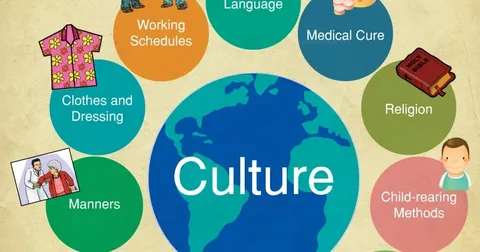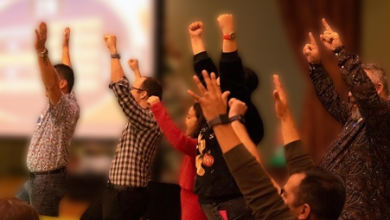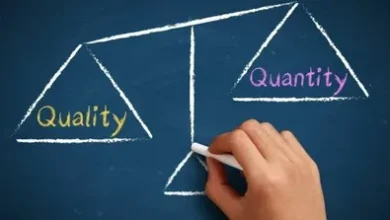Culture is the heart of human civilization, a powerful force that binds societies together, defines identities, and shapes worldviews. It encompasses a tapestry of traditions, customs, and values passed down through generations, offering a lens through which people interpret their existence and interact with the world. Exploring these cultural elements not only deepens our understanding of diverse societies but also underscores the shared humanity that connects us all.
The Foundations of Culture: Traditions, Customs, and Values
Culture can be broadly categorized into three main elements: traditions, customs, and values.
- Traditions
Traditions are the bedrock of culture, reflecting the historical experiences and collective memories of a group. These practices often mark significant milestones, such as birth, marriage, and death, or celebrate seasonal and religious events. For instance, the Chinese New Year is steeped in traditional practices like lion dances and family reunions, symbolizing luck, prosperity, and unity. Similarly, Thanksgiving in the United States is a time to honor gratitude and communal bonds, rooted in the historical narrative of early settlers.
Traditions often provide a sense of continuity and belonging. They connect individuals to their ancestry and cultural heritage, offering a framework for personal identity. At the same time, they evolve over time, adapting to modern influences and reflecting the dynamic nature of culture itself.
- Customs
Customs are the everyday expressions of culture, governing how people interact with one another and the world around them. These practices can range from social etiquette and greetings to dietary habits and dress codes. For example, bowing in Japan signifies respect, while a handshake in Western cultures conveys professionalism and trust.
Customs often differ vastly between cultures, highlighting the rich diversity of human experience. In India, the practice of removing shoes before entering a home signifies respect for the host, whereas in many Western households, this custom may not carry the same cultural weight. Understanding such variations is essential for fostering cross-cultural communication and avoiding misunderstandings.
- Values
Values are the moral and ethical principles that guide a culture’s beliefs and behaviors. They represent what a society deems important, such as family, freedom, community, or equality. For instance, collectivist cultures like those in many Asian countries prioritize communal harmony and familial loyalty, while individualistic cultures, such as the United States, emphasize personal autonomy and self-expression.
Values influence everything from governance and education to economic systems and relationships. They are often deeply ingrained and resistant to change, shaping the collective psyche of a society. At the same time, globalization and intercultural exchange have sparked shifts in traditional values, blending old ideals with new perspectives.
The Interplay of Cultural Elements
While traditions, customs, and values are distinct components of culture, they are deeply interconnected. For example, the tradition of celebrating Diwali in India is shaped by the cultural value of spiritual renewal and community. Customs like lighting oil lamps and sharing sweets are practical expressions of these values, creating a holistic cultural experience.
Similarly, Western holidays like Christmas embody values of generosity, family togetherness, and goodwill. The customs surrounding the season—gift-giving, decorating, and feasting—reinforce these values, ensuring their transmission to future generations.
Culture in a Globalized World
In today’s interconnected world, cultural elements are no longer confined to specific geographic regions. Migration, technology, and international trade have facilitated the exchange of traditions, customs, and values, creating a global mosaic of cultural practices. For instance, yoga, rooted in Indian tradition, has become a global phenomenon, embraced by people across diverse cultures for its physical and spiritual benefits.
However, globalization also presents challenges. The homogenization of cultures can lead to the erosion of traditional practices and local identities. As Western media and consumer culture dominate global platforms, smaller or indigenous cultures may struggle to preserve their uniqueness. This raises critical questions about cultural preservation and the need for a balanced approach to globalization that respects diversity.
The Power of Cultural Exchange
Exploring and appreciating different cultural elements fosters mutual respect and understanding. Cultural exchange initiatives, such as festivals, art exhibitions, and educational programs, play a pivotal role in bridging cultural divides. They allow people to celebrate their differences while recognizing shared human experiences.
For instance, UNESCO’s World Heritage Sites highlight the cultural and natural treasures of humanity, from the Great Wall of China to the ancient city of Petra. These sites serve as reminders of the ingenuity and creativity of diverse civilizations, inspiring collective efforts to protect cultural legacies.
The Role of Individuals in Shaping Culture
While culture is often seen as a collective phenomenon, individuals play a crucial role in shaping and evolving traditions, customs, and values. Innovators and cultural leaders reinterpret age-old practices, ensuring their relevance in a modern context. Families, too, act as microcosms of culture, transmitting values and customs to younger generations.
For example, the rise of sustainable practices reflects a global shift in values toward environmental stewardship. Traditions like zero-waste festivals or community clean-ups exemplify how individuals and communities can integrate contemporary values into cultural expressions.
Conclusion
Cultural elements—traditions, customs, and values—are the essence of human society, shaping how people live, connect, and understand the world. They provide a sense of identity and belonging while offering insights into the diversity and complexity of the human experience.
In an era of globalization, embracing cultural diversity and fostering intercultural dialogue are essential for building a harmonious and inclusive world. By exploring and celebrating the richness of cultural elements, we not only preserve our heritage but also pave the way for a future defined by unity in diversity.





